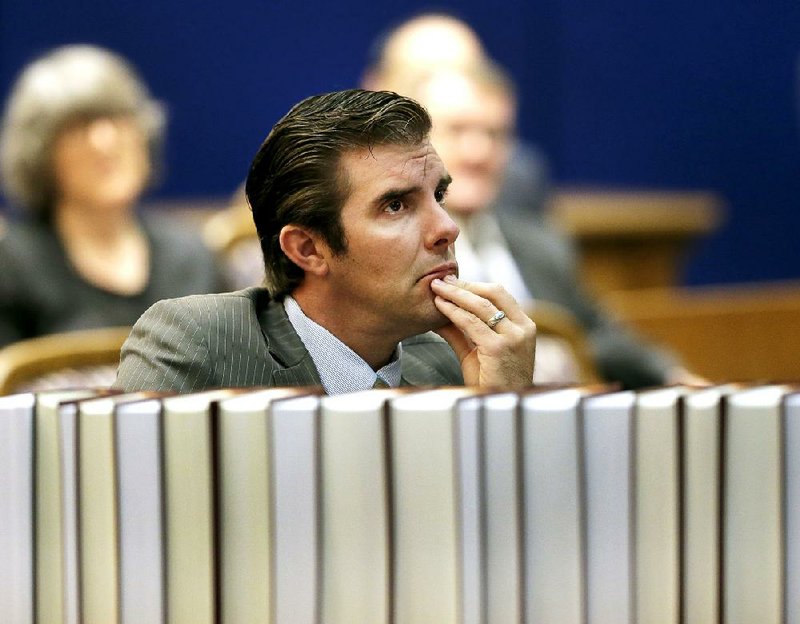TOPEKA, Kan. -- Several Kansas Supreme Court justices expressed skepticism Tuesday about a Republican official's decision to keep the Democratic nominee for the U.S. Senate on the ballot against his wishes as they reviewed a legal dispute that could affect the national fight for control of the Senate.
During arguments before the court, justices focused on whether a formal letter from Democrat Chad Taylor to withdraw from the race required Secretary of State Kris Kobach to remove Taylor's name from the Nov. 4 ballot. Some Democrats nudged Taylor out of the race because they see independent candidate Greg Orman as the stronger rival to three-term Republican incumbent Sen. Pat Roberts.
"The letter is what it is," Justice Dan Biles said from the bench. "If, as a matter of law, the letter complies with the statute, he [Kobach] has no discretion."
The Democrat's withdrawal thrust the Senate race into the national spotlight. Republicans hope to recapture a Senate majority, and they've always counted on Roberts winning re-election in his GOP-leaning state. Some Democrats believe an Orman victory could deny the GOP a majority in a close national election.
Roberts, 78, has looked vulnerable since a tough GOP primary race against a Tea Party challenger. Orman, a 45-year-old businessman and co-founder of a private equity firm, raised more in contributions and was more visible on television than Taylor, a Topeka-area district attorney.
Kobach, who serves on Roberts' honorary campaign committee with other prominent Republicans, ruled that Taylor's name had to remain on the ballot because the candidate didn't meet the requirements of state law in withdrawing. Keeping Taylor's name on the ballot could split the anti-Roberts vote and increase the incumbent's chances for victory.
A state election law says nominees' names can be removed from the ballot if they die or declare they're incapable of fulfilling the duties of office. Taylor's letter said he wanted to withdraw "pursuant to" the law, but he has not given a reason why he can't serve. Taylor attended the hearing but declined to comment.
Taylor petitioned the court to overturn Kobach's decision. The court is expected to rule quickly because county officials must begin mailing ballots Saturday to overseas military personnel.
But a court decision may not be the end of the legal dispute.
Kobach argues that even if he's forced to remove Taylor's name from the ballot, Democrats are obligated under state law to find another nominee. The court did not address that issue during arguments.
Kobach said after the hearing that he's ready to file his own state Supreme Court petition if Taylor is off the ballot and Democratic leaders won't name a new candidate.
"If I ignore the law and don't enforce it because, hey, it'd be easier for my own campaign, then I would be a raw political hack," said Kobach, who's also running for re-election this year.
State Democratic Party Chairman Joan Wagnon said she doesn't expect the party to name a new candidate so close to when ballots must be printed.
"I just don't see how it's physically possible," she said.
Pedro Irigonegaray, a Topeka attorney representing Taylor, said during the arguments Tuesday that citing the law was enough to declare that someone is unable to serve. Eddie Greim, a Kansas City, Mo., attorney representing Kobach, argued that the candidate has to say specifically in writing that he or she is incapable of serving.
But Justice Carol Beier asked why citing the law wasn't the same as declaring an inability to serve.
"Is there any other acceptable reason under the statute?" she said.
Four justices -- a majority for the seven-member court -- were appointed by former Democratic Gov. Kathleen Sebelius, including Beier and Biles. Two others were appointed by Sebelius' predecessor, moderate former GOP Gov. Bill Graves.
The seventh spot is open because Republican Gov. Sam Brownback's first appointee won't be sworn in until December.
A Section on 09/17/2014


